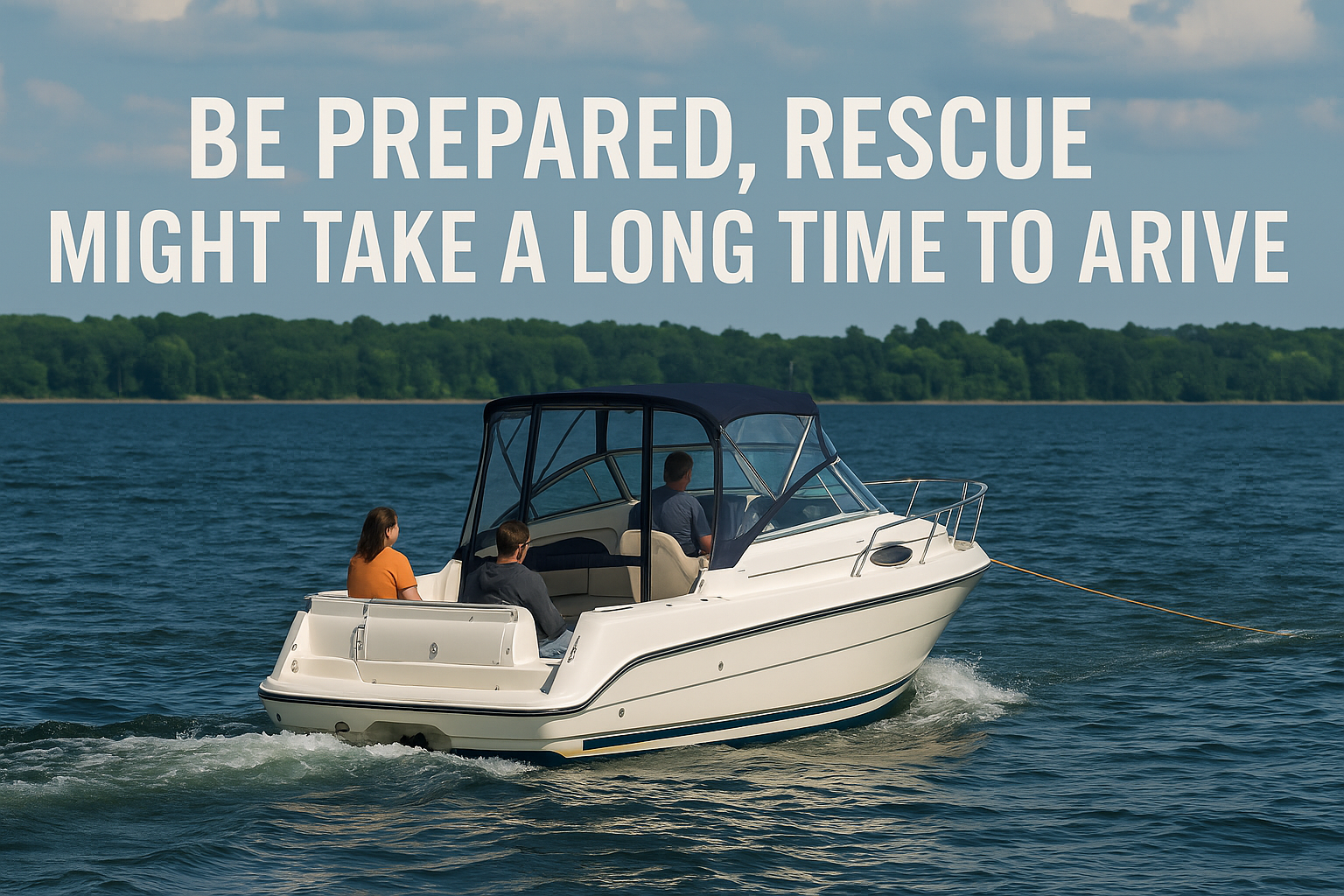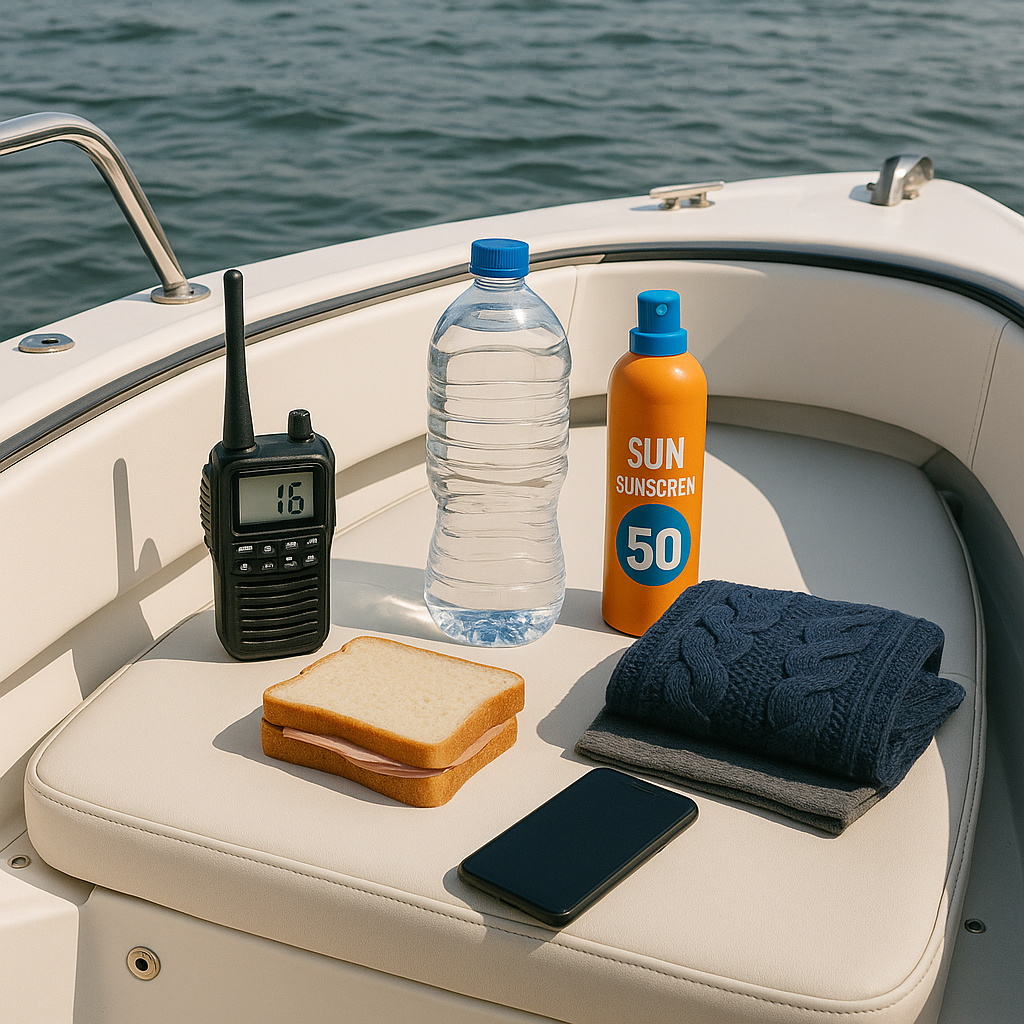What to Bring on Your Boat (That Transport Canada Doesn’t Require — But You’ll Be Glad You Did)
When you're heading out on the water, it's easy to focus on the basics — the gear that Transport Canada mandates: lifejackets, sound signaling devices, bailers, navigation lights, and so on. These are crucial for legal compliance and basic safety. But just because your checklist satisfies the minimum standard doesn't mean you're truly prepared.

Boating isn't like driving a car — it's often far more isolated. If you run into trouble on the road, a tow truck or emergency vehicle is usually a call away. In contrast, on the water, help may be hours out. There might not be a first responder nearby, and even if someone can respond, they may not be able to assist right away — especially if your situation doesn't pose an immediate threat to life or safety. Mechanical problems, engine issues, or simply running out of fuel could leave you anchored in place for a long, cold wait.

So, what can you bring to make a tough day a little easier — or even survivable? Here's a list of non-mandatory but highly recommended items to keep onboard:
🥤 Food and Water
Hydration is critical, especially on hot days when you're exposed to the sun. Keep a stash of water bottles and some non-perishable food like granola bars or trail mix. You never know how long you'll be waiting if your vessel becomes disabled.
📡 VHF Radio (Even If It's Not Required)
If your boat doesn't fall under the requirements for a VHF radio, you might not think you need one. But cell service can be unreliable or nonexistent offshore. A VHF radio lets you communicate directly with marine responders, passing vessels, or emergency services — and it doesn't rely on towers. A handheld VHF is better than nothing and could make the difference in an emergency.
☀️ Sunscreen
Many small or recreational boats offer little or no shade. Sun exposure is magnified on the water due to reflection. A day in the sun without protection can lead to heat exhaustion or serious sunburn — especially if you're stranded. Pack high-SPF sunscreen and reapply throughout the day.
🧥 Warm Clothing
Even on summer days, temperatures can drop quickly when the sun sets. If you're stuck on the water for hours waiting for assistance, especially after dusk, it can get cold fast. Always have a set of warmer clothes, a windbreaker, or even a thermal blanket tucked away onboard.
🔋 Conserve Your Phone Battery
Your phone might be your only link to help, especially if you're contacting a towing company or local marine service. Avoid unnecessary use (like music or social media), dim your screen, and bring a backup battery or portable charger.
🚨 Understand the Role of First Responders
The Coast Guard, marine police, and volunteer organizations like the Canadian Coast Guard Auxiliary are there to protect lives, not to provide towing services for non-urgent issues. Unless you're in immediate danger, responders will often wait or defer to commercial marine assistance providers. That means you could be stuck for a while — and you'll be on your own until help can safely arrive.
Final Thoughts: Hope for the Best, Prepare for the Worst
Boating should be fun — but safety and preparedness are what make it stay that way. Don't treat your trip like a short joyride. Treat it like a long drive across a remote highway, where help might not be around the corner. These extra items might never get used... but if you ever need them, you'll be grateful they were onboard.
Stay safe, stay prepared, and enjoy the water — smartly.
